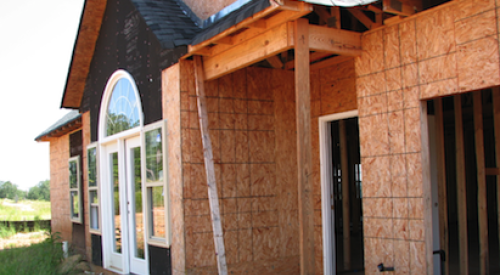Location, product and price have been the traditional key drivers of new home sales. Today, this trio of key drivers needs to welcome a new partner: financing. Although financing has always played an important part of new home sales, the tough sales environment has made it more important than ever before.
Over the last decade, two major trends have increased the emphasis on financing: average household credit scores eroded, and home ownership rates sky-rocketed.
These two trends are at odds. Both happened at the same time because both the home financing industry and home builders became flexible in getting customers approved.
A generation ago, a customer with a 610 credit score had almost no chance of purchasing a home. Today offers a multitude of options. But although this is understood by many home building managers and executives, some builders don't aggressively pursue these buyers.
As one top builder said to me, "Yeah, we struggle all the time with poor credit and no down payment customers, but I just don't see how these people should be buying a home in the first place." Another builder I work with used the following excuse to discount the fact that his company was not competitive in the mortgage process: "I got into this business because I love creating homes and communities, not because I wanted to be in the mortgage business."
If these feelings reflect your views, I have a suggestion for you: get over it or get out of the business!
Poor credit quality is here to stay. Builders who want to survive with only good or great credit customers will not be able to achieve their fair share of the market.
Just as your location and product issues are not fixed with a simple solution, chances are your mortgage problems won't be solved with only one answer.
Begin by educating yourself on the mortgage business.
Educate YourselfThe best way to avoid getting fooled by a fast-talking mortgage broker is to understand such terms as stated income, the LIBOR index and par pricing.
Once you master the vocabulary and basic products, your next step is to educate your sales force.
It's no longer acceptable to solely rely on the mortgage company to do basic qualification and to explain the variety of mortgage programs to your customers.
Next, sit down with several mortgage companies and discuss their product portfolio. If the programs sound too good to be true, ask for builder referrals, or better yet, ask to see specific examples of customers who recently closed using the instruments they are discussing.
It's as bad to have a well-intentioned loan officer who can't deliver on a no-problem- we'll-get-it-done promise as if you have one who is afraid to take on a challenging customer out of fear of losing the deal.
Savvy builders understand that to gain market share, they need to have the best mortgage programs and people who understand them. Indeed, it's just as important as having cutting-edge floor plans and efficient production.
| Author Information |
| John Rymer is the founder of New Home Knowledge, which offers sales training for new home builders and real-estate professionals. He can be reached at john@newhomeknowledge.com. |












